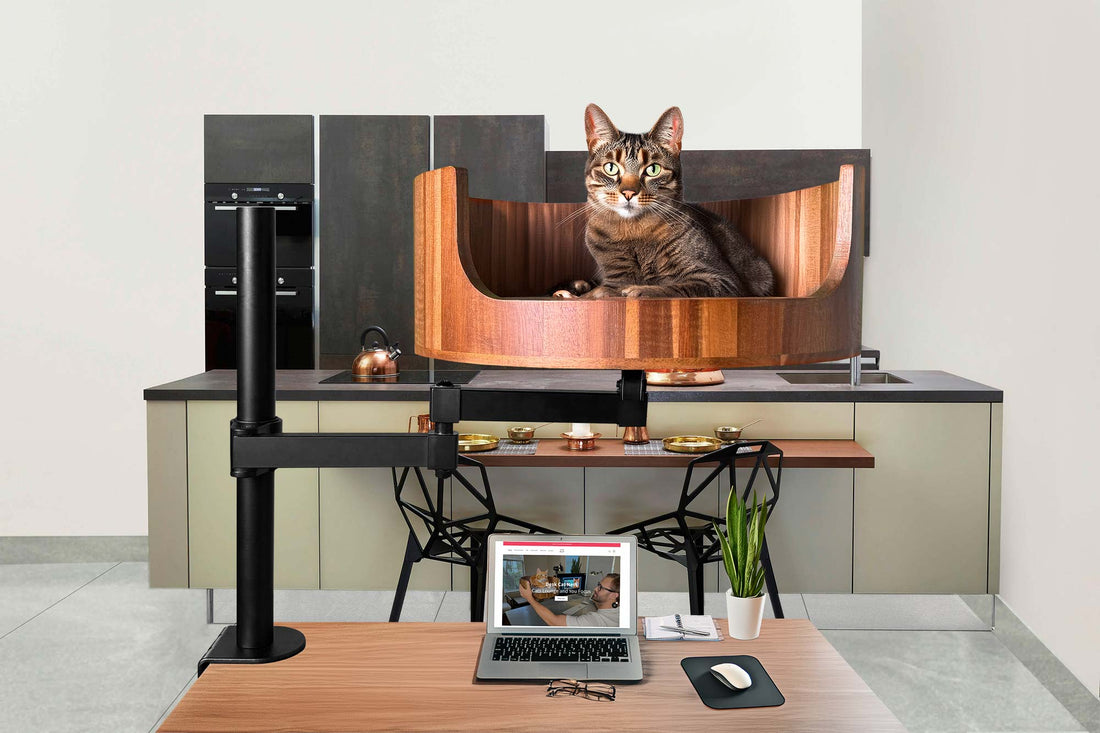
My Cat Has a Runny Nose: Causes and Solutions Explained
Share
If you have noticed that your feline friend has a runny nose, you may be wondering what could be causing this issue and how you can help alleviate their symptoms. In this article, we will discuss the various factors that can lead to a cat having a runny nose, as well as explore potential solutions to address the problem.
From allergies to infections, there are several possible reasons why your cat may be experiencing nasal discharge. Understanding the root cause of your cat's runny nose is crucial in order to provide appropriate treatment. In addition to examining common causes, we will also delve into effective remedies and preventive measures to keep your cat healthy and comfortable.
1. Common causes of runny noses in cats include infections, allergies, and foreign objects.
2. It's important to monitor your cat's symptoms and seek veterinary care if their runny nose persists or is accompanied by other concerning signs.
3. Treatment for a cat with a runny nose may involve medications, allergy management, or removal of foreign objects.
4. Regular vet check-ups and a clean environment can help prevent runny noses in cats.
5. Understanding the underlying cause of your cat's runny nose is essential for effective treatment and long-term health.
Causes of a Runny Nose in Cats
There are several possible causes for a cat to have a runny nose. One common reason is an upper respiratory infection, which can be caused by viruses such as feline herpesvirus or calicivirus. Allergies, environmental irritants, or foreign bodies in the nasal passages can also lead to a runny nose in cats. Additionally, dental issues, sinus infections, or even tumors can result in nasal discharge. It is important to consult a veterinarian to determine the underlying cause of your cat's runny nose.
Symptoms to Look Out For
Aside from nasal discharge, there are other symptoms to watch for if your cat has a runny nose. These may include sneezing, coughing, watery eyes, or a decrease in appetite. If your cat is showing signs of lethargy or difficulty breathing in addition to a runny nose, it is crucial to seek veterinary attention immediately. Monitoring your cat's symptoms and behavior can help the veterinarian make an accurate diagnosis and recommend appropriate treatment.
Treatment Options for Runny Noses in Cats
The treatment for a cat with a runny nose will depend on the underlying cause of the issue. In the case of a viral infection, supportive care such as fluids and nutritional support may be recommended. Antibiotics may be prescribed for bacterial infections, while antihistamines or corticosteroids can help in cases of allergies. Surgery may be necessary for nasal polyps or tumors. It is essential to follow your veterinarian's recommendations and keep a close eye on your cat's recovery process.
Preventing Runny Noses in Cats
While some causes of a runny nose in cats may be unavoidable, there are steps you can take to help prevent respiratory issues in your feline companion. Keeping your cat's living area clean and free of irritants, providing adequate ventilation, and ensuring proper dental care can all contribute to your cat's overall health. Regular veterinary check-ups and vaccinations can also help protect your cat from infectious diseases. By proactive in your cat's care, you can minimize the risk of runny noses and other health issues.
Desk Cat Nest FAQ
Will the Desk Cat Nest help with my cat's runny nose?
While the Desk Cat Nest is designed to provide a comfortable and cozy space for your cat, it is not specifically designed to address medical issues such as a runny nose. We recommend consulting with your veterinarian to determine the best course of action for treating your cat's runny nose.
Is the Desk Cat Nest easy to clean?
Yes, the Desk Cat Nest is made with removable and washable fabric materials, making it easy to clean when needed. Simply remove the fabric and follow the care instructions provided to keep the Desk Cat Nest looking fresh and clean.
Is the Desk Cat Nest suitable for all cat breeds?
Yes, the Desk Cat Nest is designed to accommodate cats of various sizes and breeds. However, it is always a good idea to consider your cat's specific needs and preferences when choosing a bed or nest for them.
Can the Desk Cat Nest be used outdoors?
The Desk Cat Nest is primarily designed for indoor use, as it may not provide adequate protection from the elements if used outdoors. It is best to keep the Desk Cat Nest in a dry and comfortable indoor environment for your cat's safety and comfort.
In conclusion, choosing a Desk Cat Bed for your feline friend with a runny nose can provide numerous benefits. The elevated design of the bed helps promote better airflow, allowing your cat to breathe more easily. Additionally, the cozy and comfortable fabric of the bed provides a warm and soothing environment for your cat to rest and recover. Overall, investing in a Desk Cat Bed is a valuable choice to help alleviate your cat's runny nose symptoms and ensure their overall well-being.



















































